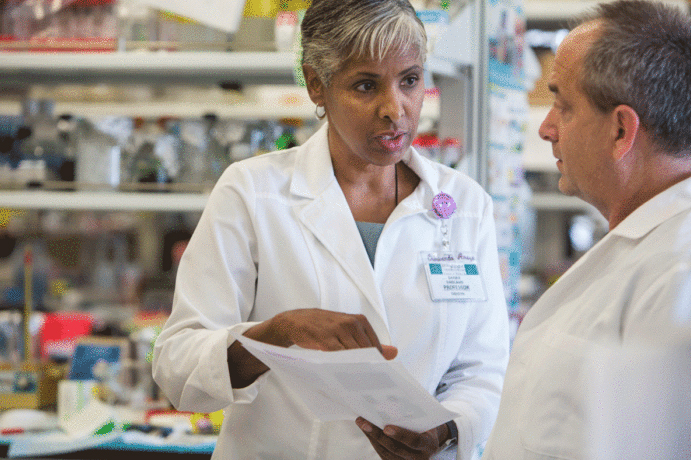
In 2005, Sarah England took a break from her job as a scientist at the University of Iowa to work as a health policy fellow in U.S. Sen. Hillary Clinton’s office on Capitol Hill. She helped draft legislation on newborn screenings, preterm birth research and other issues related to the health of mothers and babies during pregnancy.
England, who has a doctorate in physiology, said it was a remarkable experience and a defining year for her. “I liked being able to link policy to the basic science that we do every day,” said England, the Alan A. and Edith L. Wolff Professor of Medicine in Obstetrics and Gynecology at Washington University School of Medicine in St. Louis. “Also, I was used to being around really smart academicians. It was nice to be around incredibly smart people in a different realm and interact with people who think on a broader scale.”
England has a reputation as an exceptional leader and researcher who is enthusiastic, supportive and driven. She heads a basic science program with the goal of understanding how ion channels — which she describes as roads through the membrane of a cell — work in blood vessels and in the muscle layer of the uterus, and whether movement of ions through these roads hampers contractions during pregnancy and labor.
Her work one day could reduce the frequency of preterm labor, which affects 12 percent of births in the United States and is the leading cause of newborn death. Babies who survive often have serious and lifelong health challenges, including breathing problems, developmental delays, vision loss and cerebral palsy.
She and her team are trying to find how ion channels are regulated in the uterus, in order to target these channels with medication or other interventions aimed at reducing the frequency of preterm births.
Read the full profile on the School of Medicine site.